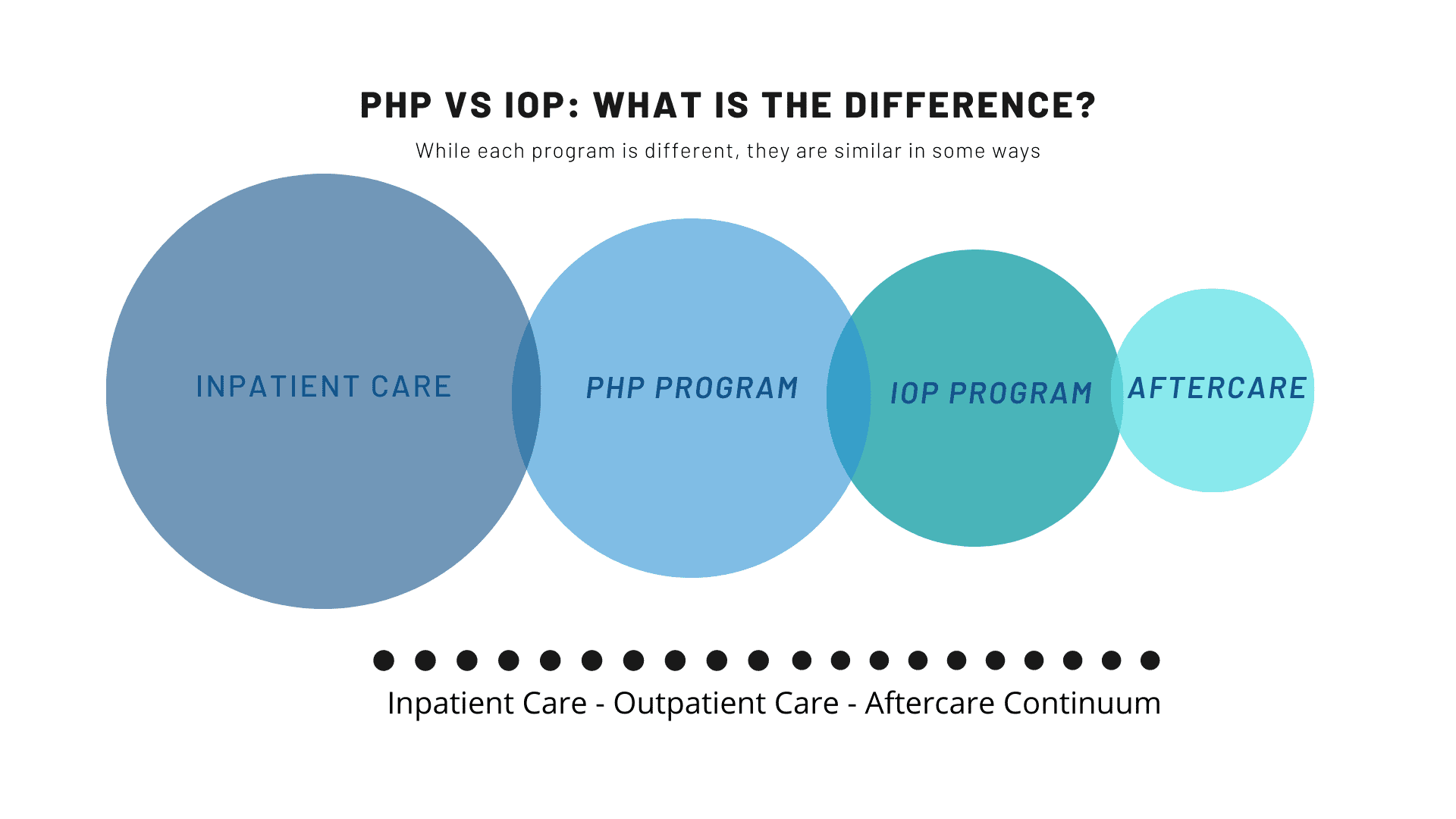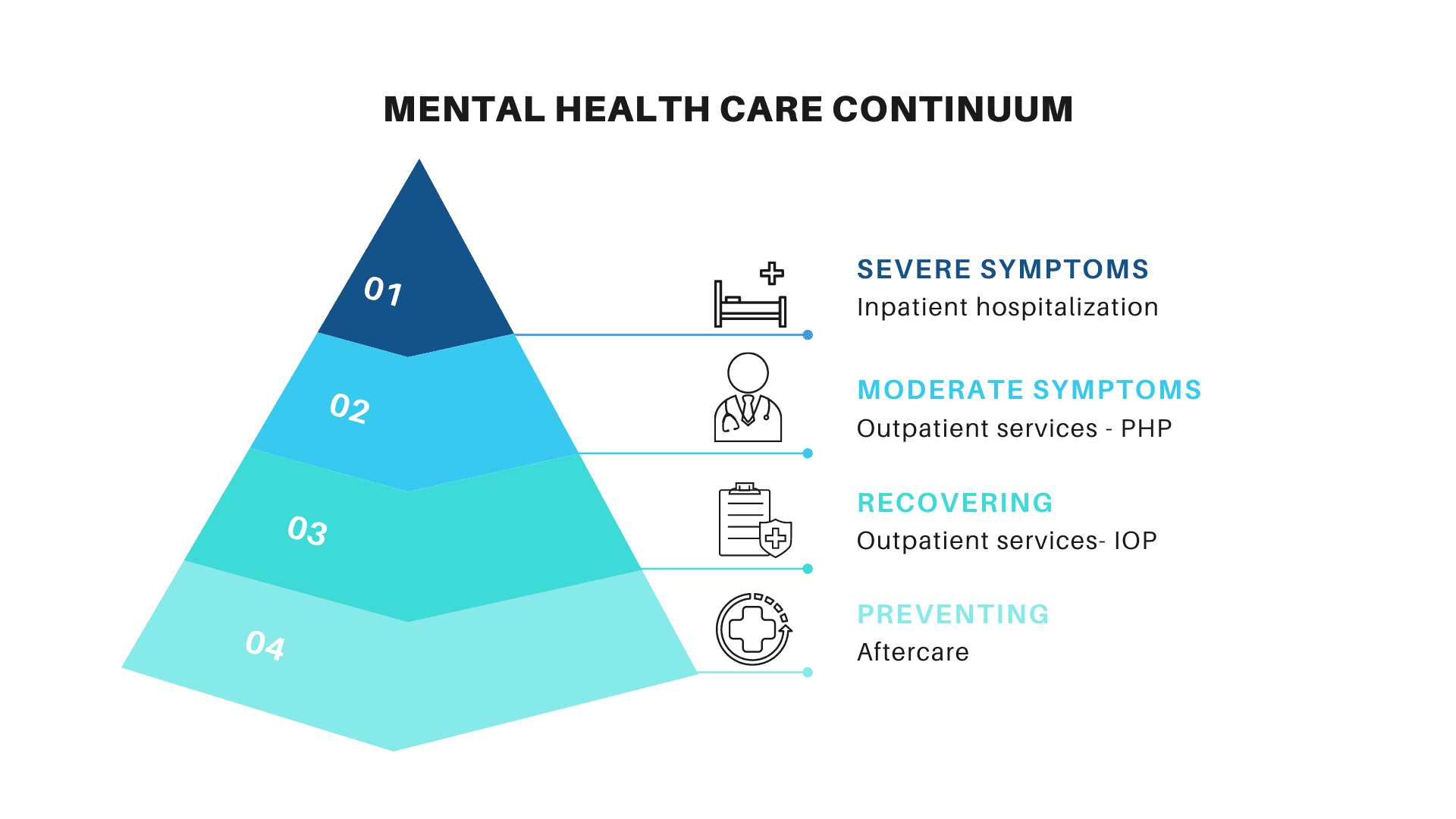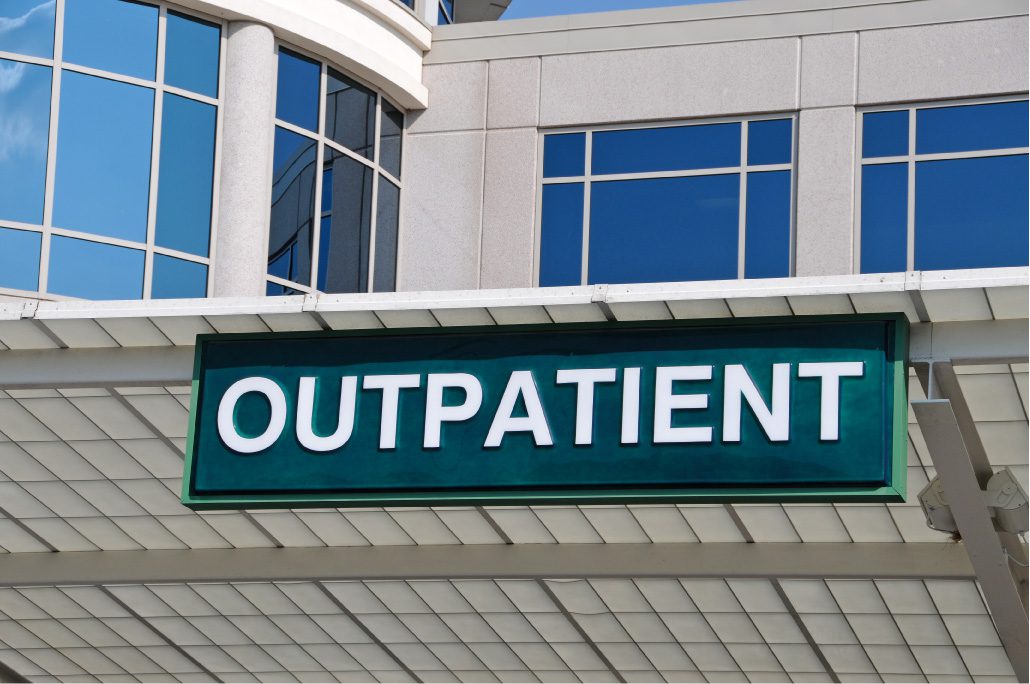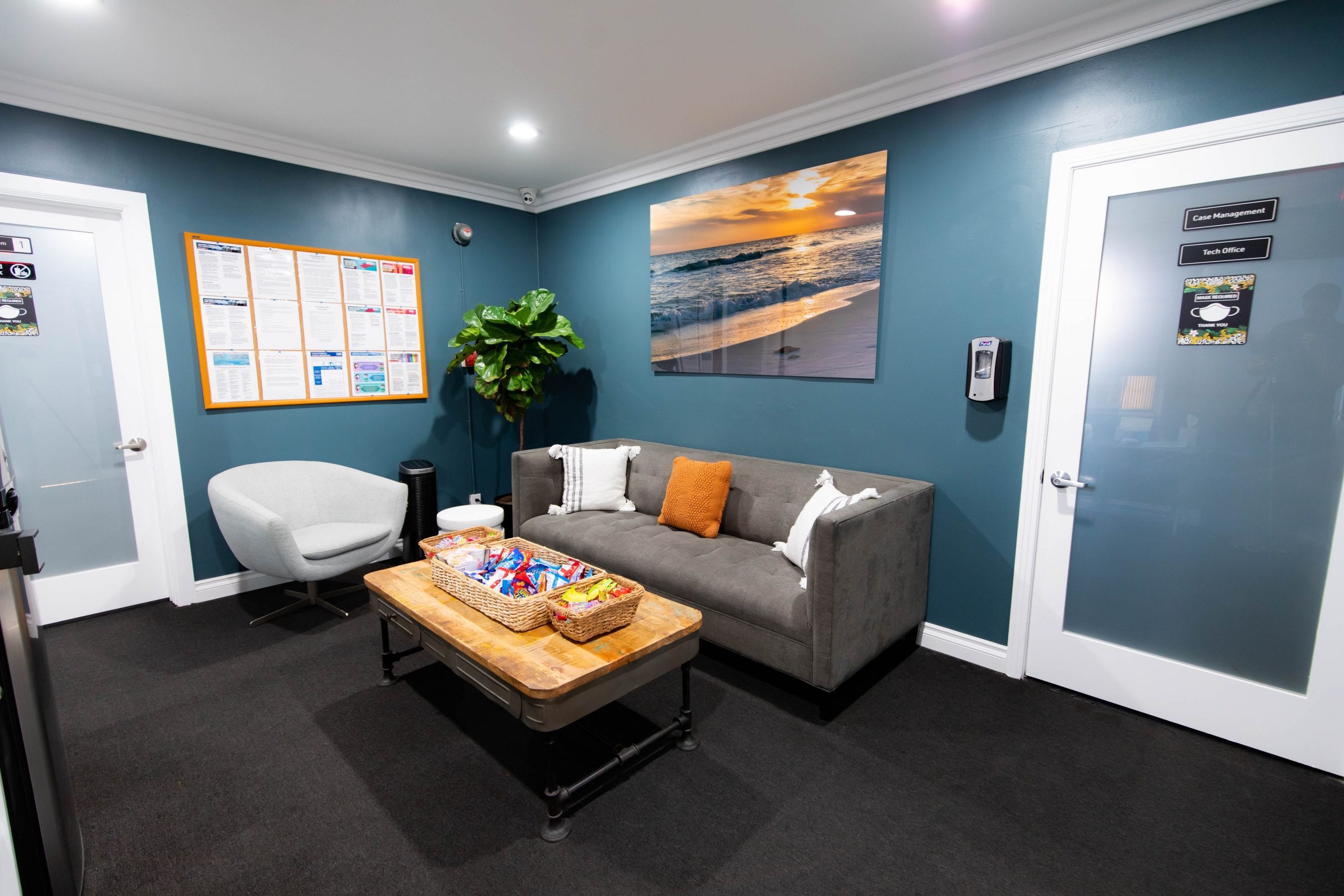PHP Program vs IOP Program: What Is The Difference?
If you do not have prior knowledge of how to seek a suitable treatment for your mental health or addiction problem, it is easy to fall into the dilemma of which treatment is right for you. You begin to hear all sorts of medical jargon about “residential treatment”, “inpatient care”, “day treatment”, “IOP programs”, “aftercare“, “PHP vs IOP“,“advantages of PHP” and others. It might be overwhelming and daunting. What is an IOP program, what is a PHP program, and what’s the difference?

PHP Program, Partial Hospitalization Program, or “Day-Treatment”:
Patients tend to directly enter into a PHP program (partial hospitalization program) after completing their detoxification or inpatient treatment. In most cases, PHP requires the patient to be available for treatment on a daily basis. The main difference is that more of the patient’s time is required each day compared to the IOP.
Our PHP programs are 6 hours a day, 5 days per week.
Our IOP programs are 3 hours a day, 3-5 days a week.
We are ready to provide both in-person and virtual care (telehealth services)
PHP programs have significant amounts of individual and group therapy where they are taught better coping mechanisms to deal with their stress as alternatives to turning to alcohol and drug abuse for solace or self-medication. It is with regard that PHP is sometimes referred to as day-treatment, to capture the idea that a patient will be receiving care on a nearly full-time basis during the day and allowed to go home in the evenings.
In addition, more supervision including the monitoring of psychiatric symptoms and intake of medication is associated with PHP than with IOP, but this is also subject to your insurance cover limit that could determine the range of services that you will receive.

IOP Program or Intensive Outpatient Program
IOP programs are meant for people who do not need inpatient treatment and have moderate to mild symptoms. Therefore IOP programs are mostly recommended as a subsequent stage for patients who have left the inpatient facility or are stepping down from the more intensive PHP given that the symptoms identified and monitored are under control, implying that you might only need support structure. IOP allows you to adhere to your treatment program after regaining the confidence to begin a new sober life, with just the right amount of support. Many IOP–affiliate programs encourage participants to engage in a 12-step program to help streamline their path to sobriety. Your insurance cover limits also play a vital role in determining the extent of IOP.
Our PHP programs are 6 hours a day, 5 days per week.
Our IOP programs are 3 hours a day, 3-5 days a week.
We are ready to provide both in-person and virtual care (telehealth services)

PHP vs IOP: What Is The Difference?
While the recovery journey is different for every person, there are levels of treatment for each problem, depending on how severe the symptoms are:

The difference between an IOP and a PHP is subtle but important. The program that’s right for you will depend on many factors, including whether you’ve been in treatment before and whether you have a strong support system at home. The most important difference between IOP and PHP is that:
- Our PHP programs are 6 hours a day, 5 days per week.
- Our IOP programs are 3 hours a day, 3-5 days a week.
If you’ve been through inpatient treatment recently and you’re looking for the next step in your recovery journey, a PHP could be the ideal next step.
If you experience moderate mental health or addiction problems, IOP treatment might be sufficient as a first step on your recovery journey.
Reading to discover the difference between PHP and IOP addiction treatment is important, but always consult with the doctor for an initial assessment, so that your physical and mental health situation can be effectively gauged.

Is the IOP or PHP program right for you?
Sometimes people may ask why their IOP or PHP program is not working. Is it that the psychiatrist/therapist is incompetent? Often, the answer to this question is that the symptoms of the person receiving care are too severe for the level of care that they are engaging with.
At Overland, we provide individual therapy, group therapy, telehealth, case monitoring, solution-focused brief therapy, behavioral therapies, acceptance& commitment therapy, medication management & psychodynamic therapy.
Contact Overland IOP today via phone, live chat, contact forms, or email! We work 24/7 and provide in-person, virtual care (telehealth services), and hybrid treatment plans. Our IOP and PHP programs offer morning, afternoon, or evening options. Start your treatment as soon as the same day!
If you need FREE help please contact the National Helpline about mental and/or substance use disorders, prevention, treatment, and recovery in English and Spanish.


Updated 08/24/2024

PHP vs IOP Programs at Overland
Overland is the top-rated mental health, addiction, and codependency treatment center in Los Angeles, California. We provide IOP, PHP programs and in-person, virtual care (telehealth services), hybrid treatment plans. Our mental health treatments include depression treatment, anxiety treatment, dual diagnosis treatment, PTSD treatment, personality disorder treatment, mood disorder treatment & complex trauma treatment. Our addiction treatments include alcohol addiction treatment, heroin addiction treatment, prescription drug treatment, meth treatment, cocaine treatment, sex addiction treatment & gambling addiction treatment. Contact Overland IOP today via phone, live chat, contact forms, or email! We work 24/7 and provide in-person, virtual care (telehealth services), and hybrid treatment plans. Our IOP and PHP programs offer morning, afternoon, or evening options. Start your treatment as soon as the same day!
Published: September 10, 2021

Published: February 14, 2026
Medication-Assisted Treatment (MAT): How It Works?
Summary: Medication-assisted treatment (MAT) is an evidence-based approach to addiction treatment that combines FDA-approved medications with behavioral therapy and counseling to treat substance use disorders — primarily opioid and alcohol addiction. MAT is endorsed by the Substance Abuse and Mental Health Services Administration (SAMHSA), the National Institute on Drug Abuse (NIDA), and the World Health […]
Read more
Published: February 06, 2026
Talk Therapy: Types, Benefits & How It Works in California
Summary: Talk therapy — also known as psychotherapy — is a structured, evidence-based treatment approach in which a trained mental health professional helps individuals identify, understand, and change the thoughts, emotions, and behaviors that contribute to mental health conditions and substance use disorders. It is the foundation of treatment for depression, anxiety, PTSD, personality disorders, […]
Read more
Published: January 27, 2026
What Is DPD? Understanding Dependent Personality Disorder
Most people don’t ask, “What is DPD or Dependent Personality Disorder?” They come in feeling drained, anxious, and stuck in relationships that feel restrictive yet hard to leave. Being alone feels unsettling. Decision-making feels paralyzing. Reassurance becomes a daily necessity rather than a comfort. At Overland IOP in Los Angeles, we often see Dependent Personality […]
Read more
